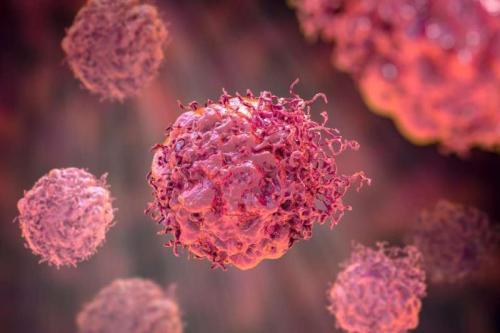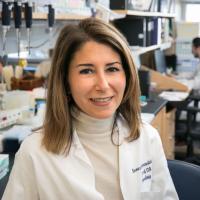
Scientists develop roadmap to create new treatment strategies for ovarian cancer
FINDINGS
UCLA researchers have created a roadmap looking at different ways to use the immune system to fight ovarian cancer, which could ultimately lead to the development of more effective immunotherapeutic strategies using checkpoint blockade, monoclonal antibody therapies and combinational therapies to better treat the often-lethal cancer.
The comprehensive profiling led to several findings:
- Recurrent ovarian cancers are enriched for tumor cells with cancer stem-like features and are vulnerable to TCR/NKR/CAR targeting.
- The environment around the tumor is immunosuppressive, and becomes more suppressive to the immune system as the cancer comes back. This environment makes it difficult for our body's immune cells to fight the cancer effectively.
- Researchers identified a marker called CD1d in the ovarian cancer environment that can be targeted for new treatments.
- The cell-based therapy approach using the invariant natural killer T, or NKT, cells can be a promising therapy because it can attack both the cancer cells and the and the suppressive environment around the tumor. These cells may possibly be used as a way to deliver next-generation off-the-shelf cell-based immunotherapy strategies.
BACKGROUND
Ovarian cancer is one of the deadliest gynecologic cancers in the United States and worldwide. It is often not discovered until it's already in an advanced stage because the symptoms are not specific and there are not effective ways to screen for it. Even after initial treatments like surgery and chemotherapy, the disease often comes back, leading to the development of an even more aggressive cancer.
New treatments are urgently needed to help the nearly 20,000 women who are diagnosed with this disease in the Unites States every year. To create better therapies, researchers need a better understanding of the molecular and cellular characteristics to develop new ways to target the cancer.
METHOD
The researchers conducted a comprehensive analysis of primary tumor cells and their microenvironment from 16 tumor samples from patients who had not received chemotherapy and from 10 patients whose cancer had come back after treatment. They tracked changes of the cell population along the disease progression, which allowed for the identification of potential molecular targets for developing immunotherapies and yielded insights into its cellular composition and property changes between the two samples.
IMPACT
The study presents a comprehensive immuno-profiling roadmap of ovarian cancer tumors and their microenvironment during disease progression, which leads to a better understanding of the disease that can help guide the development of immunotherapies for hard-to-treat cases of ovarian cancer.
Researchers highlighted the potential of NKT cells for targeting ovarian cancer and hope to take these potent immune cells into the clinic to see if they can be a viable option as a therapeutic approach for ovarian cancer.
JOURNAL
The study was published in the journal iScience, an open access journal from Cell Press.
AUTHORS
The study was an interdisciplinary collaboration between the laboratories of Lili Yang, a UCLA associate professor of microbiology, immunology and molecular genetics, and Dr. Sanaz Memarzadeh, professor of obstetrics and gynecology. Both are members of the UCLA Jonsson Comprehensive Cancer Center and the Eli and Edythe Broad Center of Regenerative Medicine and Stem Cell Research at UCLA.
The co-first authors are Yan-Ruide (Charlie) Li, a member of the Yang lab, and Christopher Ochoa, a member of the Memarzaedeh lab. Other UCLA co-authors are Yichen Zhu, Adam Kramer, Matthew Wilson, Ying Fang, Yuning Chen, Tanya Singh, Gabriella Di Bernardo, Enbo Zhu, Derek Lee, Neda Moatamed, Joanne Bando and Jin Zhou.
Notes
This work was supported in part by grants from the California Institute for Regenerative Medicine, the Concern Foundation, the STOP Cancer Foundation and the Rose Hills Foundation.


